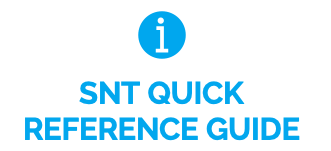How To Set Up A Supplemental Needs Trust
TRUTH: The most important asset your kid has is You. No one can replace a parent. Having a special needs trust in place will help ensure your child continues to be cared for and live a full life as you lot age and upon your death. However, a fully realized plan for the future has 3 elements: The SNT is a critical piece of your estate and financial planning. Recollect, the trust itself does not secure your child's future, the resources you lot direct to fund the trust will do that job. Mutual Planning Mistakes to Avert: I'VE BEEN NAMED TRUSTEE OF A SPECIAL NEEDS TRUST. NOW WHAT Practise I Do? What a wonderful souvenir y'all take given to your child and anybody in his or her life . At present, onward to making sure your trusts and estate plans are properly aligned with your financial programme in order to provide the resources needed to fund them. Desire to stay on top of new planning information and workshops we offering? We are Certified Financial Planner ProfessionalsTM and our expertise is in financial planning, managing your financial resources and advising you lot, from an objective viewpoint, about the large decisions in your life. For more 20 years we take worked with families like our own, to plan for their hereafter and the lifetime support of their family member with special needs. Putting together all of the elements - the people, the coin and the legal documents- transforms your vision into a plan for a life that is greater than the sum of its parts. Talk with united states of america - we tin assistance. A Parent's Guide to Setting upwardly a
Special Needs Trust

 The People who will have roles in your child'south life. Your Letter Of Intent includes them all merely the Helpful tips section beneath discusses trustees and guardians specifically.
The People who will have roles in your child'south life. Your Letter Of Intent includes them all merely the Helpful tips section beneath discusses trustees and guardians specifically.  The Coin to fund your plan. A Comprehensive Special Needs Fiscal Plan includes all the members of your family unit. A special needs trust is a vehicle to provide the money for your kid to keep to live a full life after you lot are gone.
The Coin to fund your plan. A Comprehensive Special Needs Fiscal Plan includes all the members of your family unit. A special needs trust is a vehicle to provide the money for your kid to keep to live a full life after you lot are gone.  The Legal Documents to formalize and direct the implementation of your plan. A properly drafted and funded special needs trust is a key component of your plan.
The Legal Documents to formalize and direct the implementation of your plan. A properly drafted and funded special needs trust is a key component of your plan. Table of contents


What is a special needs trust (SNT)?
Who is involved in setting up a SNT?
Why set up a SNT?
What types of SNTs are there?
Third-Party Special Needs Trusts
Pooled Trusts
When and how should the trust exist funded?
 Trusts may be funded in various means and in most circumstances, the SNT is funded at the expiry of the parent(s) or master care giver, rather than during their lifetime.
Trusts may be funded in various means and in most circumstances, the SNT is funded at the expiry of the parent(s) or master care giver, rather than during their lifetime.

 HELPFUL TIPS
HELPFUL TIPS
Keep documents and key roles current. Time often brings about changes in many people'due south lives. Bs sure to review your legal documents, Letter of Intent and beneficiary designations periodically.
Manor Planning and Types of Trusts
Who will exist Trustee?
Trustee Responsibilities
Options for Choosing a Trustee:
At that place are 3 chief options when considering who should exist a trustee for your SNT. You may also choose to name co-trustees who volition share the responsibilities.
Choosing Trustees and Guardians:
 Guidance for Trustees and the Trustee Toolkit
Guidance for Trustees and the Trustee Toolkit
Congratulations, You've done it!
Additional Resources :
 or Follow united states :
or Follow united states : You may find these additional resources helpful:
We get it.

Source: https://info.specialneedsplanning.com/en-us/parents-guide-to-setting-up-a-special-needs-trust

0 Response to "How To Set Up A Supplemental Needs Trust"
Post a Comment